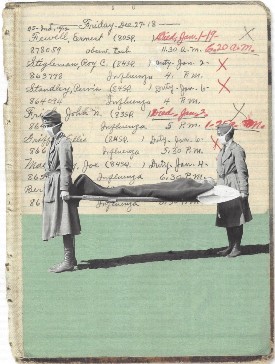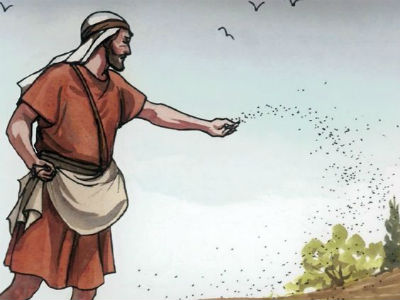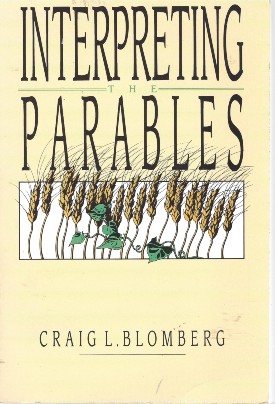The Left-Handed Kingdom or…Why Doesn’t God Do Something?
By Neil Earle
 Ageless Question: “Where is God when trouble strikes?”
Ageless Question: “Where is God when trouble strikes?”On one level world news is looking more discouraging all the time and violence is becoming a hallmark.
No wonder some people ask: Where is God? What is he doing? We’ve prayed and prayed but the news is still bad. What is going on here?
Where is the Deliverer?
It’s good at such times to remember that Jesus’ day was also full of atrocities and tensions. In Luke 13 Jesus cites two examples. A tower had fallen on people in Siloam killing many and the Roman governor had executed worshippers in the very temple precincts (Luke 13:1-5).
Remember, the Jewish people of Jesus’ day were expecting a great Deliverer to come from Bethlehem known as the Messiah. They were chafing under the oppressive heel of Roman rule. One of Jesus’ disciples was a former Zealot named Simon. The Zealots were sworn terrorists who had vowed to wreak whatever havoc they could upon Roman officials and their puppets, the Herods.
Let’s remember the Gospels are not always written with a benign Sunday School halo around them. Christ’s message of the Kingdom of God was issued against a backdrop of explosive political and social tension. For example, Jesus’ challenging statement in the Sermon on the Mount about carrying someone’s baggage two miles if they forced you to do it was a comment on a very real situation whereby Roman soldiers often pulled out a sword to forcibly conscript Jewish peasants to carry their gear.
So when Jesus showed up preaching the kingdom of God it must have seemed at first like a cry of relief in the ears of his hearers. His disciples may have passed on the stories about Jesus’ birth, how he had been born in Bethlehem as the prophecies had called for, how a heavenly choir had appeared to shepherds at his birth and how wise men had come from far away bringing gifts of gold, frankincense and myrrh saluting a young baby as the King of the Jews.
At Jesus’ birth God moved heaven and earth to influence the mighty Roman emperor to arrange a census so that Jesus would not only be born in Bethlehem but worshipped by Gentile kings at his birth.
Now there was might! There was a display of political power and control of natural phenomenon such as Jesus’ audiences could relate to. Then there were the miracles, the well-attested healings that emanated from his personal appearances. Surely, with all this the Kingdom was ready to move in – right?
Well, in part. Jesus early showed he had no taste for the violent overthrow of the constituted authorities – he paid taxes, made friends with Roman officers and one of his disciples had been a government tax collector. What happened to the Kingdom Jesus had begun proclaiming and of which he was indisputably King?
We can ask the same question today. What on earth is God doing? If the Messiah has come where is the power to end the senseless evil in this world? A few years ago a book came out titled “The Upside Down Kingdom” about how the Kingdom Jesus Christ brought was so different than what everyone was looking for in the First Century…and ever since.
Martin Luther called it “the left-handed kingdom,” a kingdom so unlike the governments and power structures of this world that even Jesus’ friend John the Baptizer was temporarily confused.
 The parable of the sower and the seed: it’s understandable to think that hardly anyone is responding. But…
The parable of the sower and the seed: it’s understandable to think that hardly anyone is responding. But…Left-Handed Power?
The very fact that the Christ child was born in a fairly “small potatoes” town such as Bethlehem and not mighty Jerusalem five miles north should have made people think. It should make us think. These small details paint a picture of a Kingdom coming in weakness, coming in great humility, coming in great insignificance as a far as the rich and famous of the First Century were concerned. Which is why the title “The Upside Down Kingdom” is such a good one.
Anglican minister Robert Capon in his writing on the parables has argued that Jesus consistently represented “left-handed power” as opposed to the right-handed power of the despots and rulers of his era. This included King Herod who had all the boy babies killed in Bethlehem to stamp out this rumor of “King of the Jews.” It meant the Romans with their 6000 crosses erected on the road to Rome after one major slave revolt, as we see in the movie “Spartacus.”
Grisly, sickening stuff. The bad news of the world today, mired in atrocity then as now. Where is the Kingdom amidst of all this? In the midst of all this – we should remember – the Church Jesus founded was exploding in growth and influence and its main task was to announce the dawn of a better day, the righting of all things, the event known as the Kingdom of God.
Left-handed power, says Capon, is “a paradoxical power, power that looks for all the world like weakness, non-intervention that seems indistinguishable from calloused apathy.” It’s an intriguing phrase but it reminds us of how Jesus worked and taught, not as a powerful political figure with backing from the Rich and Famous but…a kingdom hinging on cups of cold water given in his name, drafting boys with loaves and fishes to feed thousands, promoting powerless little children as forerunners of the kingdom. It includes fathers extending unfathomable mercy to a rebellious, heedless son and compassionate half-breeds like the Good Samaritan ending up as heroes or like an impoverished housewife who throws a party because she’s found her lost coin.
Is This the Kingdom?
All this helps answer the question – where is the Kingdom Jesus promised? Why are people still dying in Afghanistan or Iraq or San Bernardino, or on the highways or in hospitals or trying to stay warm under a freeway tunnel? What’s going on? Has Jesus let us down? Where is the King of Mighty David’s Royal Line, the Deliverer the Jewish people were expecting? We could all use a Deliverer right about now after a year like 2020.
Well, take heart. Jesus wasn’t deceiving us. The Kingdom is here only it is present in the smallest, quietest, weakest places. It is present but cloaked with invisibility. The Parables Jesus gave make it clear that to see the Kingdom at work we have to be looking in the right direction. What is the kingdom like? Jesus once asked. Well, it’s like…like leaven, which a woman puts in three measures of meal till the whole mass is leavened.
“The Kingdom? Like Fleishmann’s yeast? Jesus – you’ve got to be kidding,” some might say.
 Jesus’ parables confounded our expectations by representing “left-handed power.”
Jesus’ parables confounded our expectations by representing “left-handed power.”The Everyday Kingdom
But wait! There’s something about leaven. It is small and miniscule yet steady, relentless, unstoppable and ultimately…transformative.
The fact that the kingdom is small means it gives us – ordinary people like you and I – a chance to participate. The fact that it is always working means God has been conscripting people across all eras of human history to do his bidding.
These are great tip-offs to the way it works in the Kingdom of God.
In his provocative Commentary on Matthew’s Gospel, the Anglican evangelist Michael Green raises the questions about the Kingdom that the parables of Matthew 13 answer. As well as the hiddenness and ordinary “every-dayness” of the Kingdom enshrined in the leaven analogy, Green explores other answers. Let’s listen in on Green’s lively rapping with Jesus.
“Why it seems, Lord that hardly anyone is responding.” Right. That’s an understandable reaction. But the Parable of the Sower had already answered this. Of four categories Jesus described who had heard his invitation it seems only group four seems to “get it” (Matthew 13:1-9). Capon, by the way, has an even better answer for that in his book, Kingdom, Grace, Judgment. Even seed scattered by the wayside has a habit of growing up against the odds. And the birds take it but sometimes drops much of it far afield.
“But…the kingdom, dear Master, seems so ineffective up against the disastrous news of the world today.” Again, remember the Parable of the Mustard Seed. This tiny bead of a thing starts miniscule and slowly, inexorably takes over as church history testifies (Matthew 13:31-32). The abolition of slavery largely traces to a group of English Christians in a small village named Clapham that the world has never heard of. (Google “Clapham Sect.”) Mighty America was sped along by 51 survivors of 100 from a tiny ship called “Mayflower” and Spanish missionary/martyrs pushing up from Mexico. The house churches in China – now numbering in the millions of adherents – took off under the baleful days of Mao’s China.
You have to know where to look.
Yes, but “well it seems, forgive me, my King, so hard to keep this before us with all that’s happening.” Ah, well don’t forget the parable of the Pearl of Great Price (Matthew 13:44-45). You have to know what to look for. It takes a special kind of person to spot the kingdom at work. If you have responded to Jesus’ invitation you are that person, an ambassador of the Left-Handed Kingdom.
 The parable of the great dragnet: the Lord promises to sort out the good from the bad.
The parable of the great dragnet: the Lord promises to sort out the good from the bad.“Why is it so weak, Jesus, and why does evil persist?” The parable of the weeds growing vigorously among the wheat reminds us that there is a judgment coming. The Good God has allowed evil to co-exist but not forever. Witness the spectacular ends of abusers from Adolph Hitler to Saddam Hussein. The once-scary USSR is no more. The final ushering in of the Kingdom will be even more spectacular. The Kingdom is indeed the great equalizer (Matthew 13:24-30). Meanwhile we have work to do.
“Why do we have to wait so long for vindication?” Ah, remember the Parable of the Great Dragnet. The Lord is keeping watch (Matthew 13:47-50). He promises to sort out the good from the bad. The Kingdom is the time of the Great Reversal when the first are last and the last are first.
Seeding the Kingdom
By now we begin to see. Our questions have answers. Our job is to pass out cups of cold water, scrounge about for loaves and fishes to feed the hungry, visit the sick, encourage the prisoners, pass out Thanksgiving turkeys, run food banks, staff cold-weather shelters – in other words, the kind of work that Christians have been doing for centuries! It doesn’t seem like it’s changing the world does it? But it is making a big big difference in the lives of millions and millions of people.
After Haiti’s devastating earthquake in 2011 I couldn’t help but notice how one news reporter and his team stumbled ashore in search of a first-hand report. The first people they met were aid worker from World Vision! Christians were already there. World Vision itself was formed out of tragedy – the nightmare so many orphans faced back in the Korean War (1950-1953).
We seem to have come full circle. The kingdom that began at Bethlehem is small, quiet, humble, insidious almost, but very very effective, like leaven. Take another look – the Kingdom is at hand. Maybe you can help out.